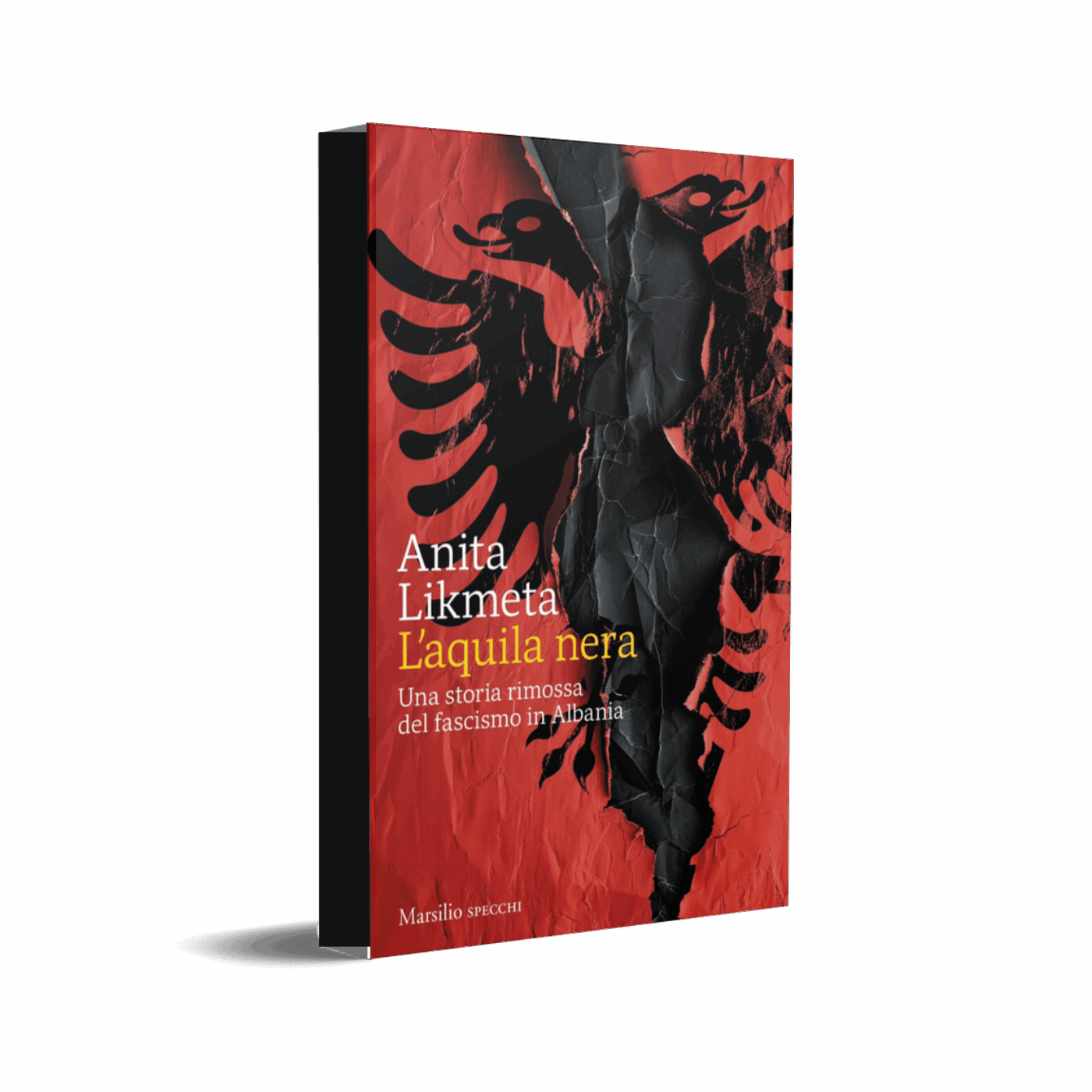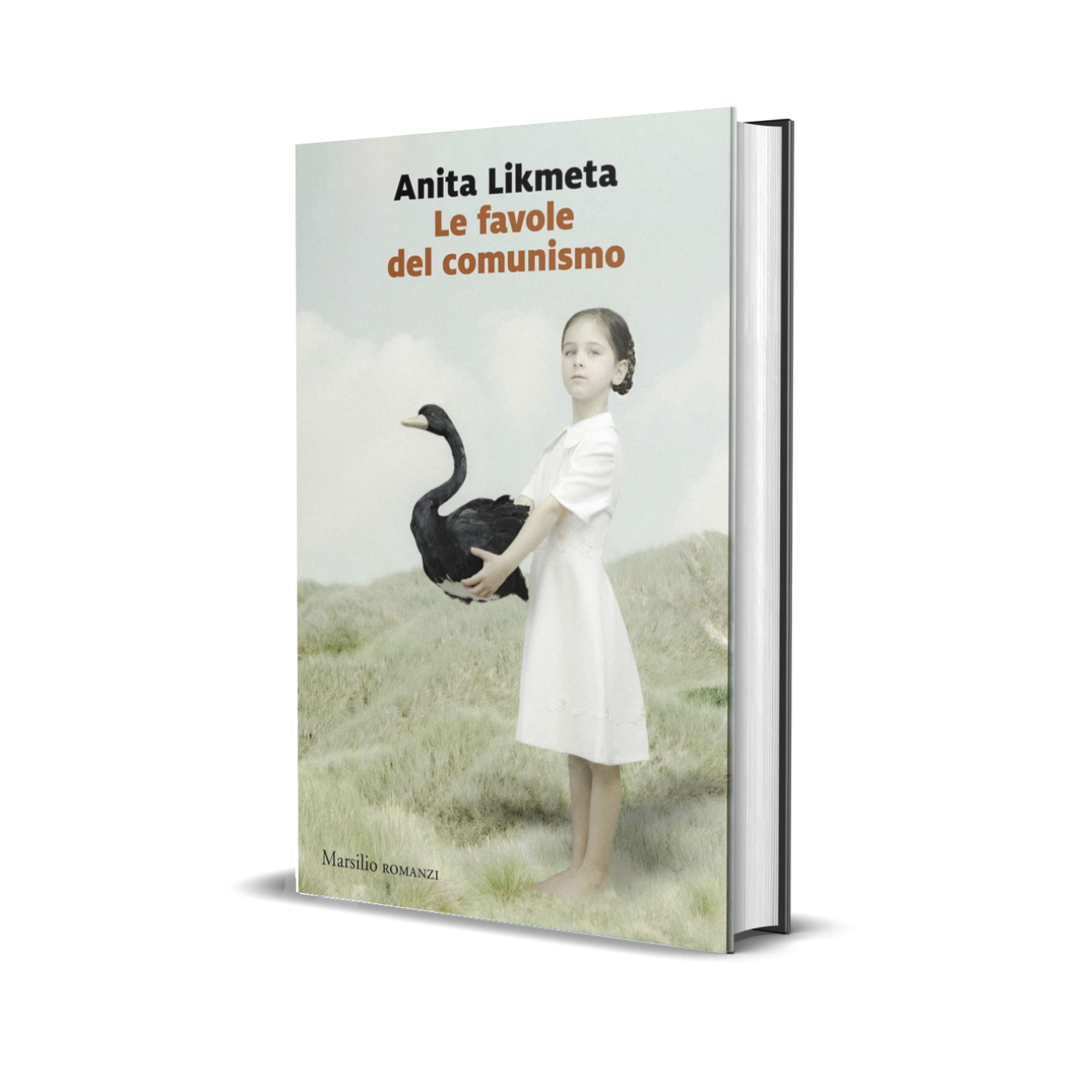
L’aquila nera
The Black Eagle
Late summer, 1994. In Rrubjekë—a village of low stone houses and fields stretching to the horizon—a group of children out searching for adventure stumbles upon the remains of Italian soldiers. A white bone juts from the earth, half-buried like a tree root. No one knows how long it has lain there. No one speaks with finality. But Anita, the youngest in the group, senses that this fragment of death belongs to a buried history—one that still casts its shadow across both shores of the Adriatic. It marks the beginning of a journey in reverse, through a memory torn between two homelands: the Albania of her childhood and the Italy where she came of age. In the process, she learns that April 7, 1939—the day of the Italian invasion—is not just a textbook date. The ships that arrived in Durrës carried more than military strategy; they carried fates, choices, and lives that history has erased or reduced. But not all of Italy obeyed. In the chaos following September 8, 1943, some chose, some fought, some betrayed—and some remained forever beneath that soil. Braiding family chronicle with collective tragedy, The Black Eagle is an attempt to reclaim a troubling past from oblivion. It is a quest that cuts across eras and geographies to restore voices to those denied them. With taut, unsentimental prose, Anita Likmeta crafts a memoir-essay that excavates the suppressed history of Italy’s occupation of Albania—and asks how much of memory is a matter of choice. Is what we forget truly lost, or merely waiting just beneath the surface, ready to rise again like a bone in the earth?
Le favole del comunismo
The Fairy Tales of Communism
In the Land of the Eagles, fairy tales speak of donkeys and apple trees, of covert missions to rescue a mad girl with a ponytail, and of sheets of paper that, when planted, can sprout not only garlic and onions but houses too. The Land of the Eagles is the happiest place there is. Or so they say. Even without running water. Even as bunkers freckle the landscape more densely than cows. Even though Ari’s mother—pregnant too young to work—left her with her grandparents. And even when the Berlin Wall falls, the end of dictatorship is no more than an illusion, a sudden vacuum filled with chaos, masked men, and a violence that has shed its name. Many leave, chasing the echo of a freedom that exists elsewhere. But Ari’s grandparents are too old to leave. And so Ari stays. Not by choice, not by fate, but by inertia. She stays and waits. Waits for her mother, who boarded that ship with the others, to come back. Waits for the past to sort itself out, for the world to reassemble, for the fairy tale to find its happy ending. But history is no fairy tale, and waiting becomes vertigo—a suspension without redemption. With prose that is both honed and relentless, Anita Likmeta delivers a novel that is at once an elegy and a dismantling of lies—an exploration of the lingering grip of ideology, the storytelling that shapes our sense of self, and the precariousness of identity in the face of history. The Fairy Tales of Communism is both fierce and luminous, a novel that questions the reader without offering easy answers. Because fleeing doesn’t guarantee freedom, and staying doesn’t always mean captivity.
